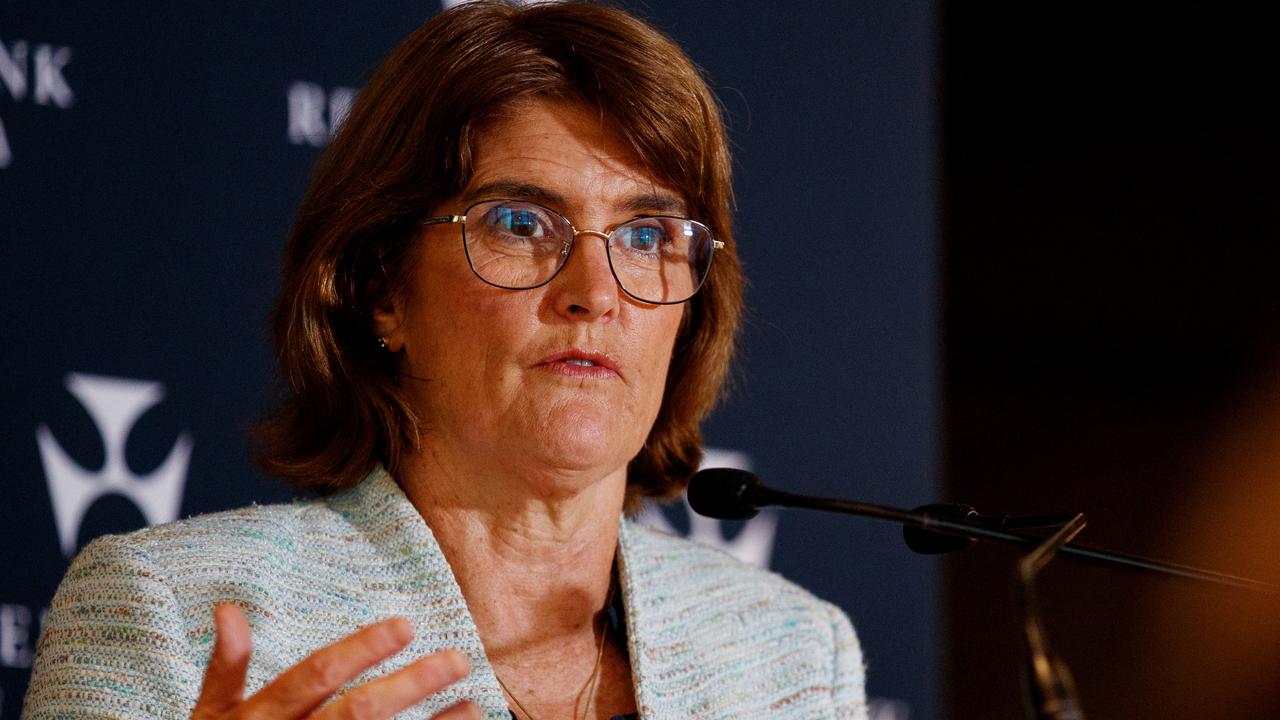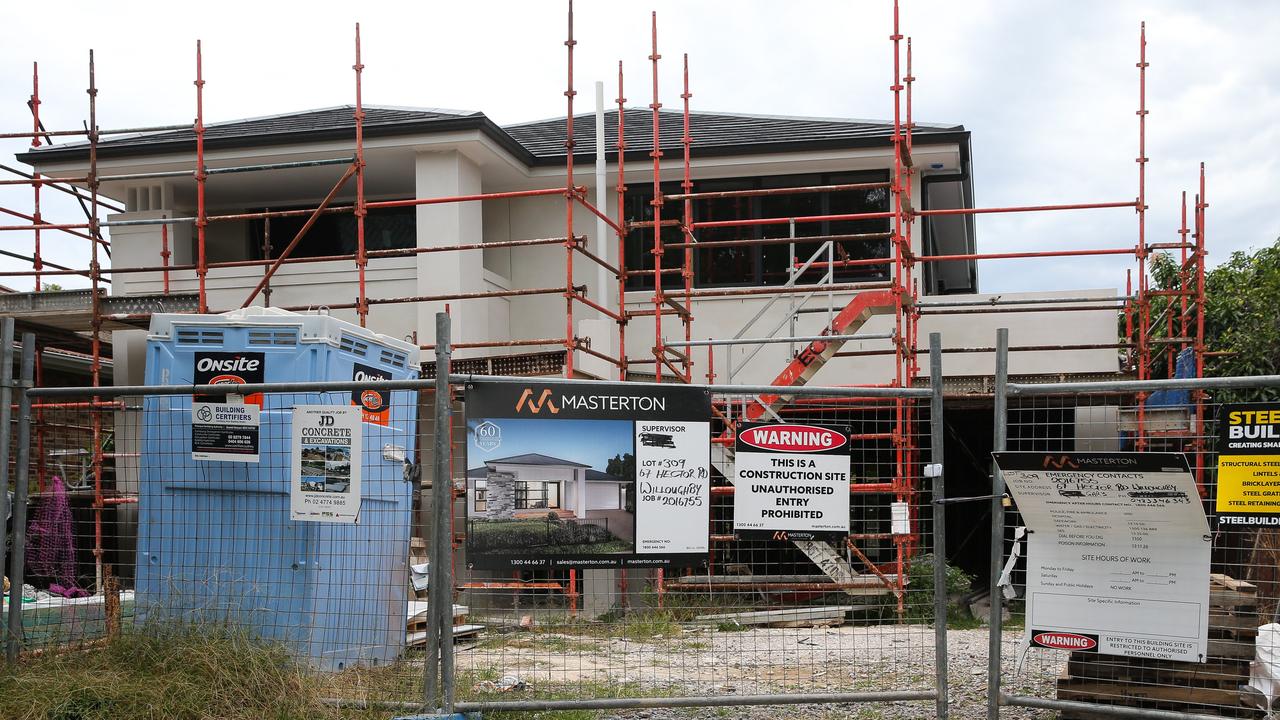Sydney Trains’ T6 Carlingford line to permanently close
Some commuters look set to have a difficult trip to work from January as a Sydney rail line closes to make way for future light rail.
Rail commuters in parts of western and northern Sydney will have a longer commute from January as one of the city’s oldest rail lines closes permanently.
It will be scrubbed off the map to make way for the construction of a new light rail project with passengers looking at years of rail replacement buses while they wait for the trams.
But most people shouldn’t have to fret — the doomed line is Sydney’s least used.
The T6 Carlingford line, which opened in 1888, will be axed on January 5, 2020. The route currently operates as a shuttle from Clyde in Sydney’s west where it connects to T1 Western line trains to the city.
The line heads north to Carlingford, on the other side of the harbour, via Rosehill Racecourse, Camellia, Rydalmere, Dundas and Telopea.
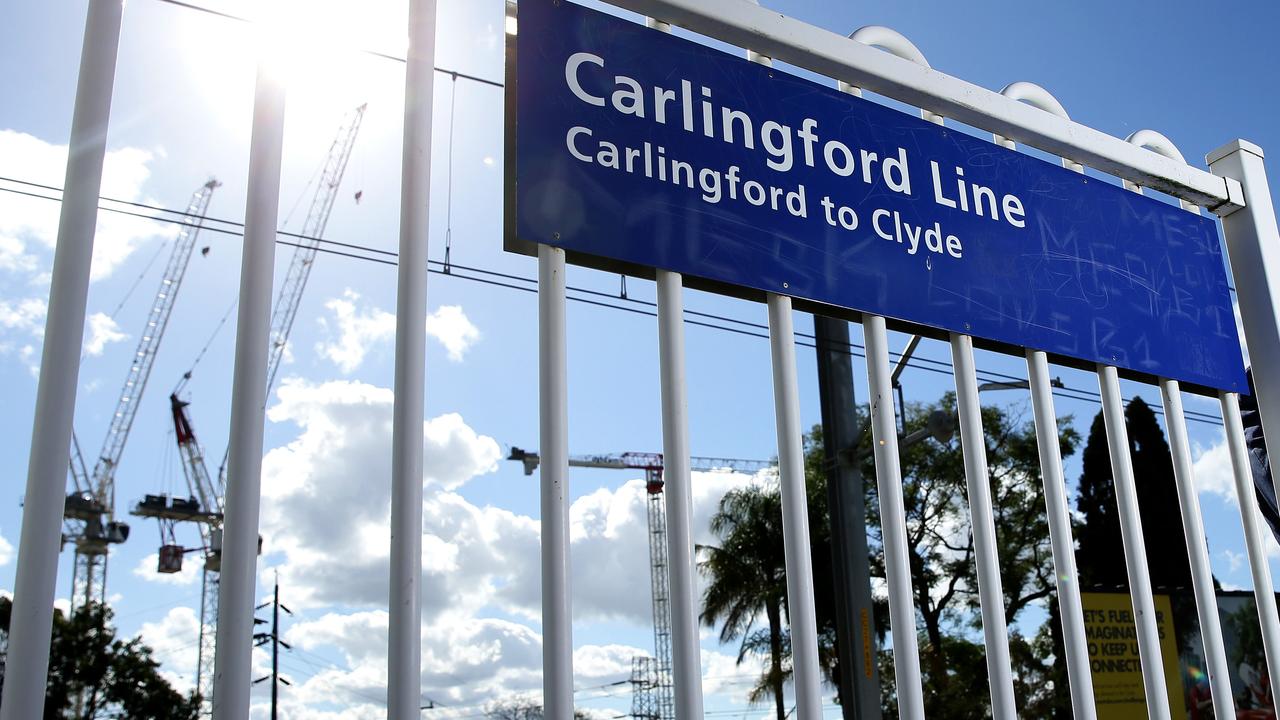
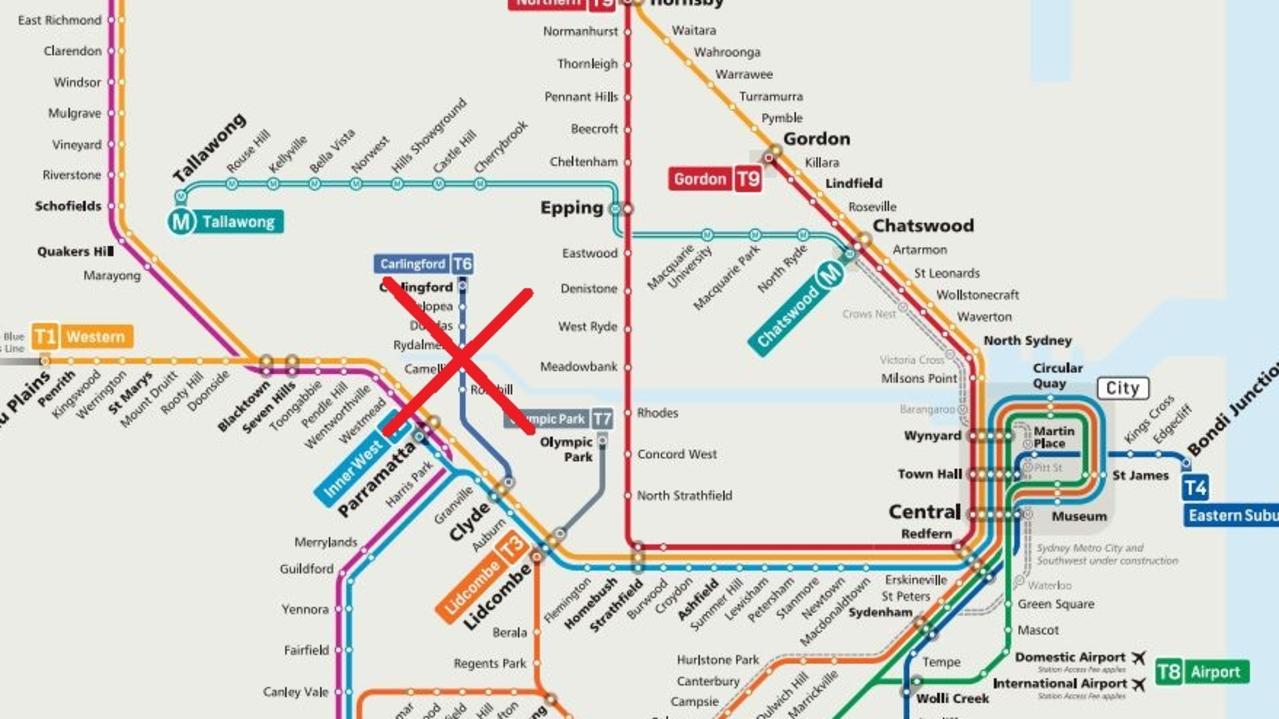
A new, somewhat circuitous, bus route will connect some of the stations to Parramatta. However, Clyde station will not be served by the replacement bus, with the bus also stopping some distance from Rosehill station.
Coloured dark blue on maps, the Carlingford line has around 500,000 annual users. That makes it Sydney’s least used, with three times fewer passengers than the T7 Olympic Park line. The big daddy of train lines is the T1 Western and North Shore that had 124 million people boarding last year.
RELATED: Map revels massive expansion of Sydney Metro network with 39 new stations
There had been proposals to extend the Carlingford line north to the transport hub of Epping to create a more viable rail line, but they never came to fruition.
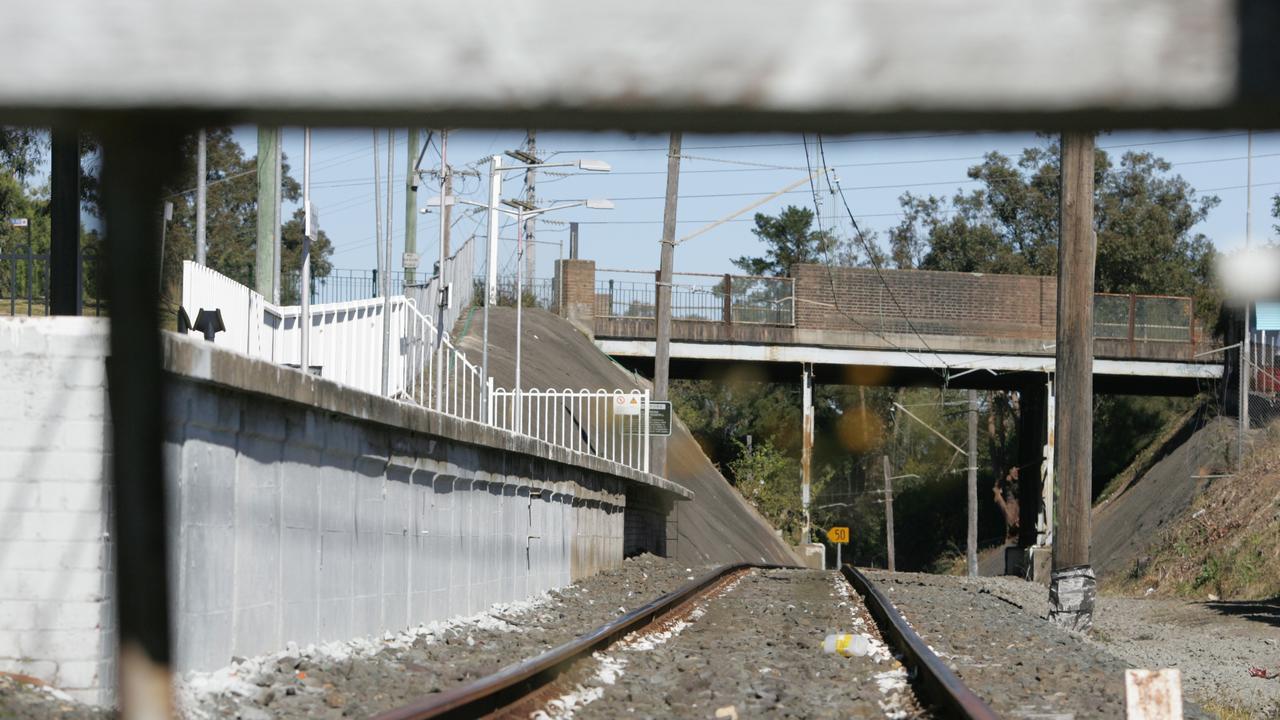
DEAD LINE WALKING
The T6 has been a dead rail line walking ever since plans were mooted for a new light rail route fanning out from Parramatta.
The $2.4 billion Parramatta Light Rail will connect Westmead to Carlingford via the Parramatta CBD and Camellia with a two-way track spanning 12 kilometres. It’s expected to open in 2023, which means at least three years of replacement buses for commuters.
Future trams will use the T6 line track bed from north of Camellia to Carlingford with the stations becoming tram stops. The section from Clyde to Camellia, including Rosehill station — handy on race days — is likely to be abandoned. T1 trains will continue to serve Clyde.
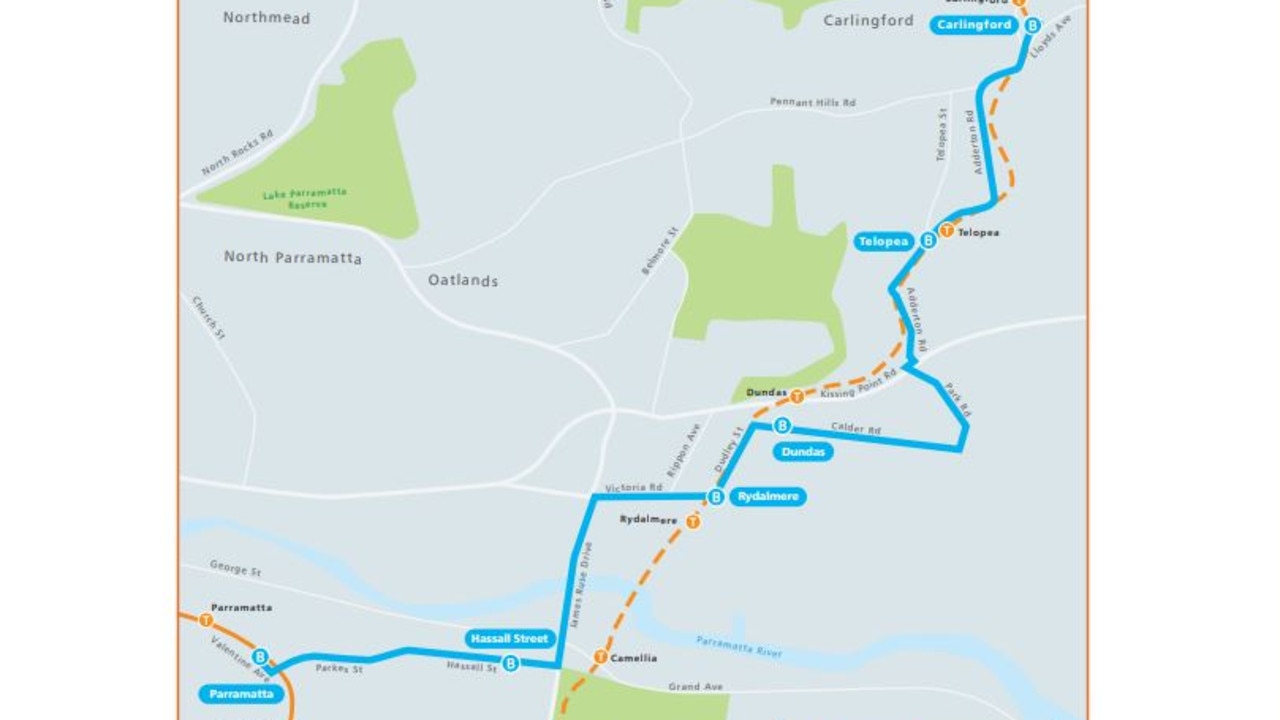
“The new route 535 will keep customers moving between Carlingford and the Parramatta CBD while we build this important new transport mode for western Sydney,” Transport for NSW (TfNSW) co-ordinator general Marg Prendergast said
“Route 535 will run at least every 15 minutes in the busy periods of the day — a boost for customers who currently have just two train services per hour during the peak on the T6 Carlingford line.”
However, the bus trip will take longer. Now, a T6 train takes 15 minutes to run from Carlingford to Clyde. The fastest bus between Carlingford and Parramatta takes 21 minutes. The new 535 bus will take a longer route to serve the closed stations which will increase trip times.
But a boon for Sydney drivers will be the removal of the level crossing across Parramatta Rd in Granville. One of Sydney’s few rail crossings, it should speed up journeys on one of the city’s busiest roads.
The axing of the T6 line will leave a gap in Sydney’s line numbering that goes from T1 to T9 for the Northern line. The T3 Bankstown line may also soon vanish as it subsumed by an extension to the Sydney Metro.
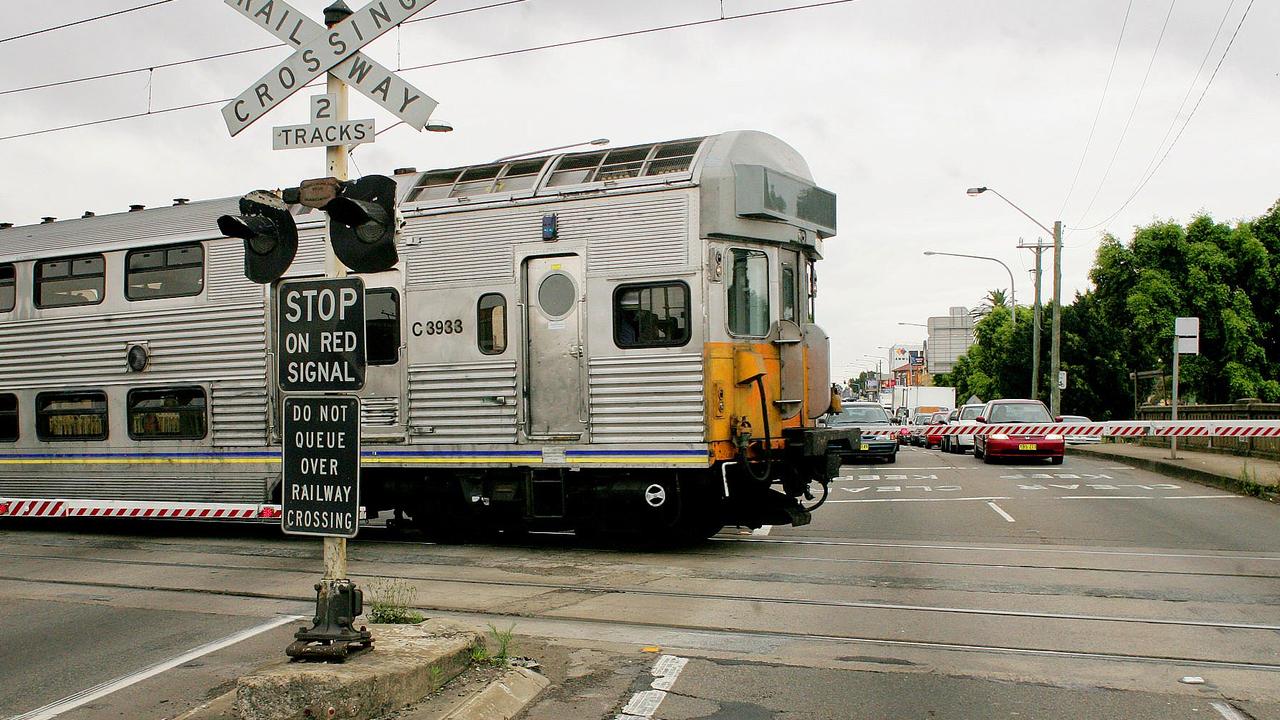
RAIL LINE AXED, ALONG WITH SUBURB NAME
There are high hopes the building of the Parramatta Light Rail will revitalise an area known more for heavy industry than homes.
But when the trams do start running, it’s unlikely they will stop at the suburb currently called Camellia.
Planning big wigs are keen on it becoming a new housing hotspot but fear the neighbourhood has such a grim and filthy history that the only way to persuade people to move in will be to rename it.
Western Sydney Leadership Dialogue chairman Christopher Brown told news.com.au in August that Camellia had to go.
“There’s the old Shell oil refinery, the old James Hardie’s asbestos factory. There’s nothing nice about it,” he said.
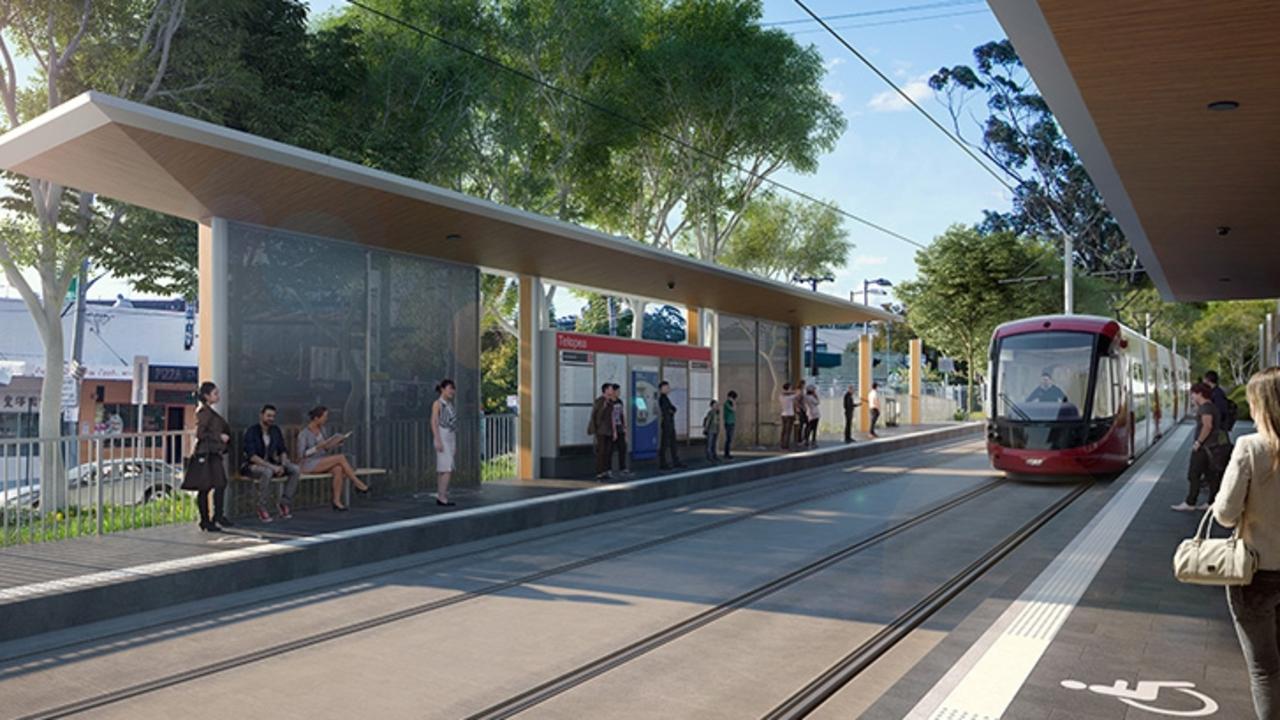
“But Camellia is also on the edge of the Parramatta CBD and is next to Rosehill Gardens Racecourse where people have been backing a winner for 100 years.”
The Dialogue has suggested splitting Camellia in two. The eastern portion, where the pollution and stains from the Clyde oil refinery that closed in 2012 still linger, would remain industrial. However, over time, it would transition into a “green tech” park.
The western portion of Camellia would become “an ambitious mixed use riverfront precinct” with scores of housing.
Mr Brown suggested this section would be renamed “Rosehill Gardens” after the racecourse.
TfNSW said T6 trains would run as normal until the last service on January 5, 2020.



